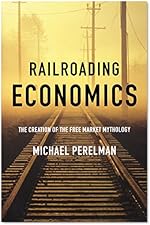A Rationalization for Educational Downsizing
High tuition might serve a useful purpose.
Moskowitz, Ron. 1970. “Professor Sees Peril in Education.” San Francisco Chronicle (30 October).
Governor Reagan’s aide Roger Freeman, who later served as President Nixon’s educational policy advisor, while he was working at the time for California Governor Ronald Reagan’s reelection campaign, commented on Reagan’s education policy: “We are in danger of producing an educated proletariat. That’s dynamite! We have to be selective about who we allow to through higher education. If not, we will have a large number of highly trained and unemployed people.”
Jedell, Hugh. 1931. “Warns Germany on Overeducation: Sees Economic Waste.” New York Times (1 November): p. 56.
New York Times article from the 1930s captures the sentiment: “The steadily rising tide of engineering students in German universities, with consequent overcrowding in the engineering profession, has moved the General Federation of German, the Association of Industrial Technologists and several other organizations to issue a public warning that a sterile, educated proletariat is being produced without a chance of gainful occupation while millions are wasted on its training.”

 25 – The Confiscation of American Prosperity: From Right-Wing Extremism and Economic Ideology to the Next Great Depression
25 – The Confiscation of American Prosperity: From Right-Wing Extremism and Economic Ideology to the Next Great Depression 30 – Manufacturing Discontent: The Trap of Individualism in Corporate Society
30 – Manufacturing Discontent: The Trap of Individualism in Corporate Society Class Warfare in the Information Age
Class Warfare in the Information Age Railroading Economics: The Creation of the Free Market Mythology
Railroading Economics: The Creation of the Free Market Mythology Steal This Idea: Intellectual Property Rights and the Corporate Confiscation of Creativity
Steal This Idea: Intellectual Property Rights and the Corporate Confiscation of Creativity The Invention of Capitalism: Classical Political Economy and the Secret History of Primitive Accumulation
The Invention of Capitalism: Classical Political Economy and the Secret History of Primitive Accumulation The Perverse Economy: The Impact of Markets on People and the Environment
The Perverse Economy: The Impact of Markets on People and the Environment
Very true. Take it back to Introduction to Macro: When demand increases (increase funding for Pell Grants) but supply does not increase (fixed resources of schools) there is a shortage, causing prices to rise. This maybe a simple view of things but I think it illustrates the sentiment. By increasing grant funding to make school more “accessible” it is really raising the price for everyone across the board.
what happened with the GI Billl was that the colleges increased their capacity, which ultimately decreased the cost of education.
“This maybe a simple view of things but I think it illustrates the sentiment.”
Simplistic, not simple. And, yes, it illustrates a kind of sentiment (bourgeois).
As for it “raising the price for everyone”, I take it you’re referring to taxes? Please. Put taxes back in line with incomes and the problem miraculously disappears.
I was not aware that a clear understanding of market forces was considered bourgeois. I agree with Prof. Perelman, that in the long run economies of scale may decrease the marginal cost, however, for now the cost will rise with the new construction projects taking place. I am paying higher tuition for these projects because the Regents have been so kind as to bundle some tuition-backed-securities in a fund raising effort.
I think this is a reasonable alternative to issuing bonds ‘backed by the full faith and credit’ of California because then they would be looking at a BBB rating (the lowest of the 50 states). This would cause higher tuition in the future to service and even larger debt burden.
In the long run, tuition maybe lowered by increasing Pell Grants, but for many individuals (including myself) we are dead in the long run because we intend on graduating in the next 5 years and will not benefit from increased capacity.
In response to the issue of taxes, this concern me very much. The universities are able to raise fees with impunity, in order to feed the beast taxes will have to be raised to fund an ever growing grant program. The G.I. Bill was a worthwhile reward for individuals who served our country honorably in the armed forces, they earned those grants. Can the same be said for Pell grant recipients?
Professor Perelman, You’ve mentioned a couple of times how colleges increased capacity which ultimately decreased the cost of college education. Do you have any sources you could point me towards that would illustrate that point? I know you have an amazing amount of historical knowledge and would like to see what you have.
The education “market”, or whatever you want to call it, is absolutely perverted. You’d think we’d be seeing these economies of scale Perelman is referring to but we’re not.
Colleges have no reason to lower prices. Government provides an unlimited amount of money for students to continue to out bid each other. At what point do students stop demanding college education because they can’t afford it? Not for long time because the costs are deferred, in terms of debt, and the government lenders aren’t likely to refuse to lend to risky borrowers. Easy money for education will only lead to continued hyperinflation. That isn’t bourgeois, that is a comment on a perverted market and a desire for sustainable education prices. Concern for the growing mountain of debt placed on youth is anything but bourgeois.
It is really very simple. Once the universities built the new capacity, those fixed costs of education are already committed, so the cost of filling the facilities with students is lower.
“colleges increased their capacity, which ultimately decreased the cost of education”
“Once the universities built the new capacity, those fixed costs of education are already committed, so the cost of filling the facilities with students is lower.”
The theory is simple but the real world shows that education costs have not decreased.
State support decreased; layers of unnecessary administrators; state and federal mandates; a desire to build more fancy buildings as a legacy; and most of all a disregard for what education should be.
Lammerding said:
“I was not aware that a clear understanding of market forces was considered bourgeois.”
I was not aware that’s what I wrote. Perhaps you should learn to read more carefully.
“I think this [to bundle some tuition-backed-securities in a fund raising effort] is a reasonable alternative to issuing bonds ‘backed by the full faith and credit’ of California because then they would be looking at a BBB rating (the lowest of the 50 states). This would cause higher tuition in the future to service and even larger debt burden.”
For a student, you have an amazingly myopic view of things. Think bigger and grander.
“we intend on graduating in the next 5 years and will not benefit from increased capacity.”
No, but your children will.
As for you and what benefits you, perhaps you should consider reading some of Prof. Perelman’s excellent books and watching some of the interesting videos he has provided to help you think about the coming choices in The Real World (TM).
“The universities are able to raise fees with impunity, in order to feed the beast taxes will have to be raised to fund an ever growing grant program.”
What did I say about myopia?
“The G.I. Bill was a worthwhile reward for individuals who served our country honorably in the armed forces, they earned those grants. Can the same be said for Pell grant recipients?”
Leaving aside the exact reasons why the GI Bill was introduced, are you alluding that only citizen-soldiers should be permitted higher education (not to mention sweet-heart loans and other perks)?
I do not feel the need to respond in any meaningful way to a half-hearted reply. I find it entertaining that someone would make a feeble attempting at tearing down an argument without building their own in its place. It is a lot easier to criticize others work than to produce original thoughts of your own.
Good rationalization!
But, as a student, you should do the heavy thinking at this point in your life. Read more stuff from this site as a start.
Good luck!
Think about this:
“Why should society feel responsible only for the education of children, and not for the education of all adults of every age?” — Erich Fromm